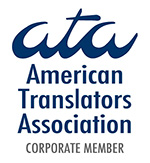Just stick with me for a second. I live in South Korea, so the K-pop industry is ever-present in my life, and has gotten me thinking.
Whatever your opinion of the music, it must be acknowledged that K-pop stars work hard for the money.
They spend long days trudging through dance classes, voice classes, foreign language classes, beauty regimens, and ad campaigns. And they do all this on low-calorie diets.
To manage this grueling routine with a smile (because sponsorships are at stake after all) their management companies know to support them with make-up artists, personal trainers, highly-specific diets, and hotel rooms where the performers will be guaranteed high quality of sleep, even if they don’t get to sleep for very long.
These companies, billion-dollar moneymakers like SM and YG, recognize that if they spring for the nicer hotel, their prized pop stars will be able to perform at a higher level. And after all, companies can procure services and goods at more efficient rates than the pop star would be able to do on his or her own. It is a drop in the bucket for an entertainment company, but maximizes the value of their investment in their star.
What does this have to do with translation?
In our industry, companies providing language services can also more efficiently procure services and goods to improve translator output, yet many translators are still expected to provide these services and tools for themselves.
There have been some promising movements in this direction, as LSP’s have begun to purchase cloud-accessible CAT tools, and translation management systems that automate OCR and word counting (how many freelancers reading this have spent 30 minutes counting Chinese characters for a client only to have the job disappear?)
But one action that we LSP’s can take, an action which is actually the easiest and most affordable, is to take responsibility for administrative tasks such as invoice and CV processing. Most translators are working with dozens of clients at any given time. When they are asked to learn how to navigate yet another new portal, and enter text into hundreds of perhaps irrelevant fields, for each of those dozens of clients, all of whom have their own specific instructions and passwords and deadlines, this wastes them considerable time. This is time that they could be translating for you. Let’s be honest, portals streamline workflow for the company, NOT for the translator.
This is why at Meridian, we hire very affordable administrative assistants to process and input CV’s into our database, rather than asking translators to click through complicated portals themselves (this is why we have been so successful in onboarding veteran translators, or translators of rare languages, who are already in such demand that they don’t feel they need new clients).
We don’t ask our translators to remember hyper-specific invoicing instructions—our assistants process PDF invoices and reach out to our translators individually if they need any further information. This means our translators can spend more time translating: they are more available, they are happier, and they answer our calls more quickly, making our project managers less stressed and more efficient.
Translators are already carrying out a near-impossible task: to match the meaning, form, AND style of two languages that each come with several hundreds if not thousands of years of nuance and history. Sometimes translators must work in a subject domain they are unfamiliar with (say, Japanese aeronautical history) which means they must become experts (in two languages!) fast. To function at a high level, they must be constantly learning, keeping up with new slang and newly-accepted terminology. They must be able to recognize sly references and double-entendres, and render them effectively. And it is very likely that they will be asked to turn around 2,000 words of translation within 24 hours.
Do you really want them spending any of those hours learning your invoicing procedure?
Richard Branson, billionaire investor and founder of the Virgin Group, said this: take care of your employees first, and they’ll take care of your clients. This is especially the case in our industry, an industry where the quality of our deliverables is so nuanced and difficult to measure, an industry where the fate of our company truly rests in the hands of our freelance translators.
Wherever we can more efficiently provide our translators with resources, we should not place the burden on them. We should consider this to be part of our best efforts to deliver the highest-quality translations and the most efficient rates possible to our clients.
Also, isn’t it just a nicer way to work?
😊
Sara Maria Hasbun is the Founder and Managing Director of Meridian Linguistics, a linguistic consulting company with branches in Hong Kong, Seoul, Lyon, and New York, and 1200+ translators living all over the world. Before founding Meridian, she worked as a freelance translator of Spanish, French, and Chinese into English. Sara Maria currently resides in Seoul, South Korea.












Leave A Comment